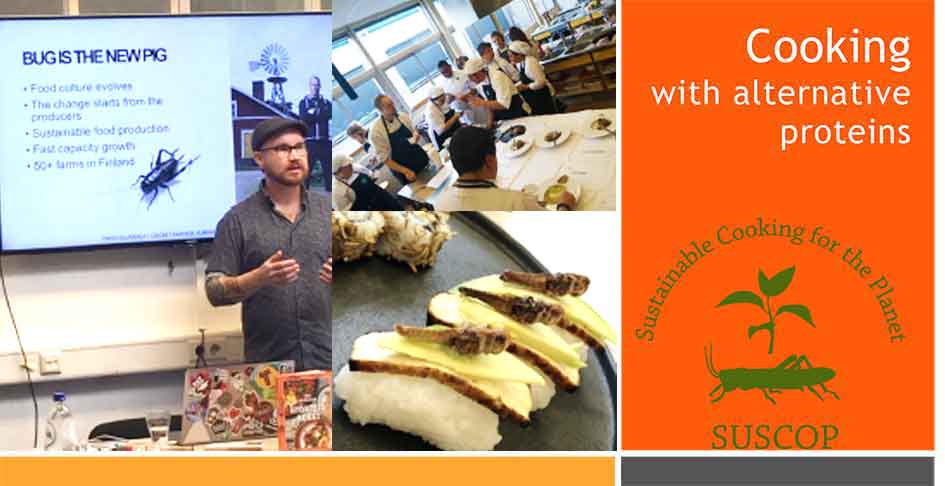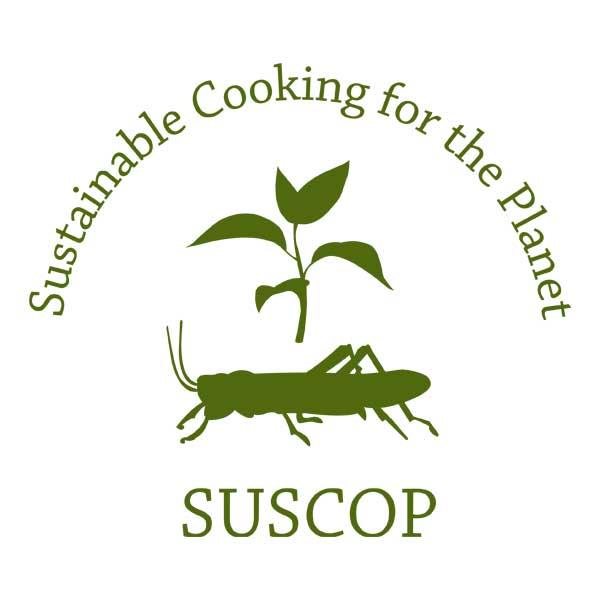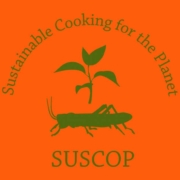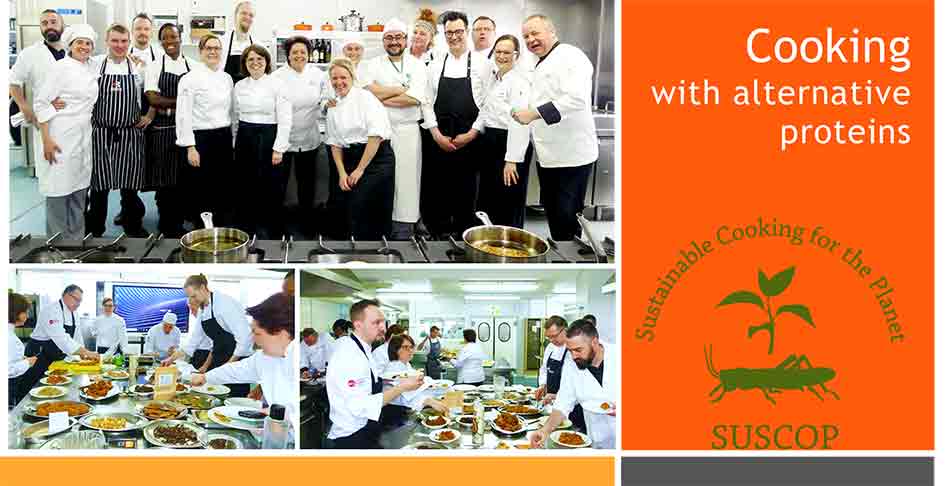Hey! Bugs on a Plate!
Sustaintable Cooking for the Planet Project
SUSCOP – project number: 2018-1-NL01-ka202-038884
The world’s population will grow up to 10 billion people till the year 2100. This means sustainability problems associated to food production. We will need more energy, water and land and the resources are limited apart of the environmental cost – we need Sustaintable Cooking for the Planet: bugs on a plate.

Topi Kairenius, writer, chef and an expert on alternative proteins, gave a masterclass “Bugs on plate; Insects in Modern European Food Culture”
In the Erasmus+ funded Sustaintable Cooking for the Planet (Suscop) project teachers of European cooking VET schools get a better understanding of the reasons why eating habits should change and giving students tools to make attractive dishes with animal source foods, like insects or vegetal, of course, which offers plenty of fiber and minerals but little of cholesterol.
The reason for this project is obvious: food production is a significant contributor to the climate change. The total amounts of water in order to get animal proteins is really high and totally inefficient. Anyway meat consumption has increased in recent years. And now, according to the IPCC 2018 report, the clinical change is inevitable, we hardly have time to react.
Finland Is a Forerunner in Sustainability
In the latest meeting of the project in Oct. 2029 in ROC Landstede in Harderwijk, The Netherlands, the students evaluated the recipes with insects and without insects provided by the teachers. So far, project working has showed that probably in our context, the plant-based food or insects are not necessary alternative proteins anymore and Finland is a forerunner in sustainability.
Bugs on a Plate/Suscop Project – Further Information
Johanna Mäesalu, Head of International Affairs
johanna.maesalu (at) perho.fi
Andre Schoonhoven, Coordinator, SUSCOP Project
aschoonhoven (at) davinci.nl
 The project partners in Erasmus+ Cooking for the Planet: ROC Landstede, The Netherlands – Haaga Helia ammattikorkeakoulu, Finland – Ikaslan, Spain – Perho Liiketalousopisto, Finland – EntoCube, Finland – Da Vinci College, The Netherlands – Bridgwater & Taunton College, United Kingdom
The project partners in Erasmus+ Cooking for the Planet: ROC Landstede, The Netherlands – Haaga Helia ammattikorkeakoulu, Finland – Ikaslan, Spain – Perho Liiketalousopisto, Finland – EntoCube, Finland – Da Vinci College, The Netherlands – Bridgwater & Taunton College, United Kingdom



